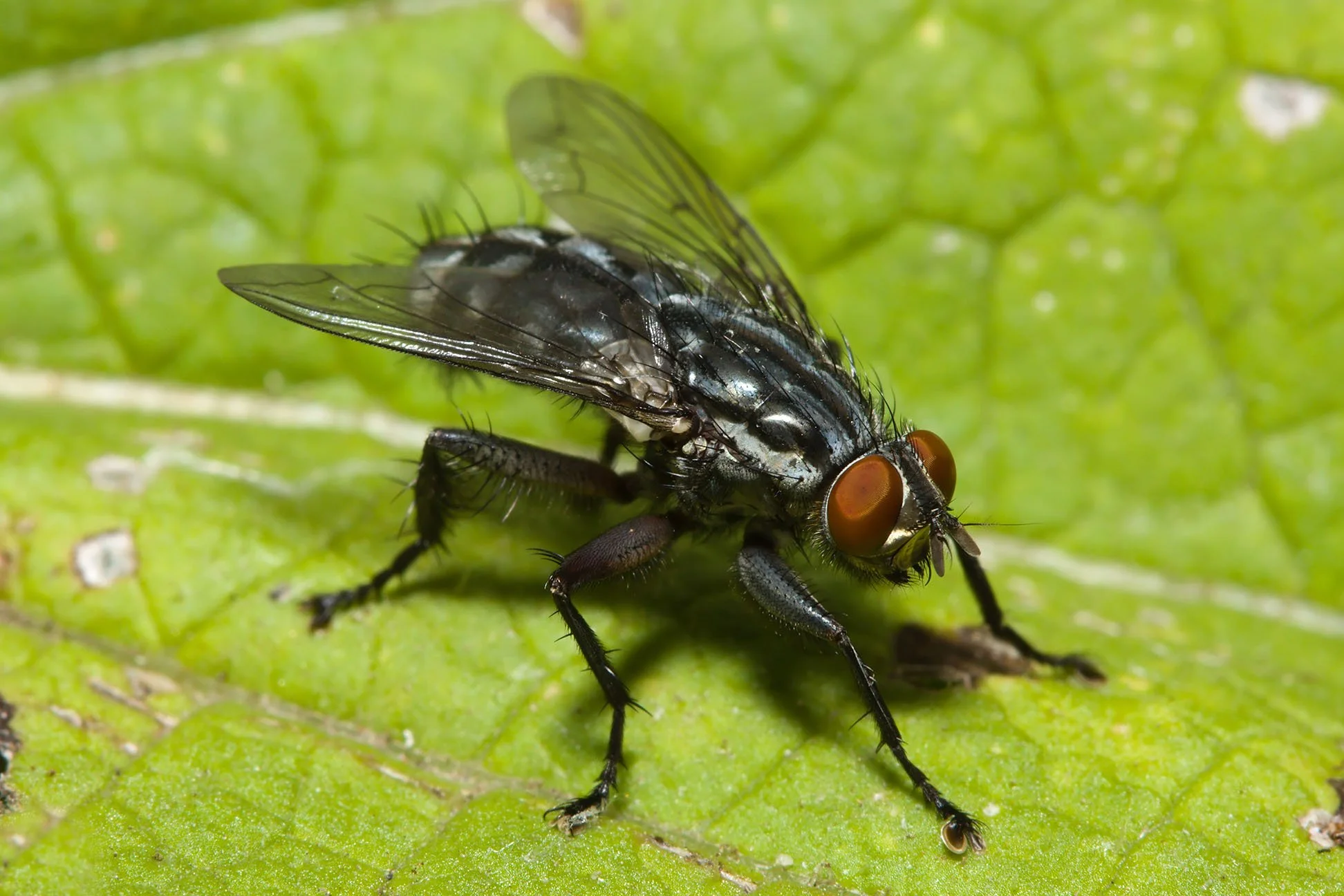House Flies
House flies are more than just a nuisance; they are significant vectors for numerous diseases. With a lifespan of approximately 15 to 30 days, adult house flies are prolific breeders, capable of laying up to 150 eggs during their short lives. These eggs hatch into larvae within hours, which then mature into adult flies, perpetuating the cycle rapidly.
House flies are attracted to decaying organic matter, including food waste, feces, and garbage. They feed by regurgitating digestive enzymes onto solid food to liquefy it before ingestion. This feeding behavior, combined with their habit of landing on various surfaces, facilitates the transmission of pathogens. House flies can transmit at least 65 diseases to humans, including cholera, dysentery, gastroenteritis, salmonella, tuberculosis, and typhoid fever.



Health Hazards of House Flies
House flies may seem harmless at first glance, but they can pose serious health risks due to their unsanitary habits and role as carriers of harmful bacteria and diseases. These common pests are not just a nuisance; they are capable of spreading a wide range of illnesses that can impact both humans and pets.
-
Disease Transmission: House flies are known to carry and spread over 60 disease-causing pathogens. These include harmful bacteria such as Salmonella, E. coli, and Cholera, all of which can lead to foodborne illnesses, gastrointestinal infections, and even life-threatening conditions.
Food Contamination: House flies feed on decaying organic matter, garbage, and feces. When they land on your food, surfaces, or utensils, they transfer harmful bacteria through their saliva, vomit, and fecal matter, contaminating everything they touch.
Allergies & Respiratory Issues: The body parts, waste, and saliva of house flies can trigger allergic reactions, particularly in those with sensitive immune systems. This can lead to symptoms like itching, sneezing, and even asthma attacks, especially in children or elderly individuals.
Eye & Skin Infections: Flies are linked to eye infections like conjunctivitis (pink eye) and can also cause skin irritations. Their germs can be transferred through direct contact with surfaces they’ve contaminated or by coming into contact with flies themselves.
How to Stop House Flies
Keep house flies at bay by maintaining cleanliness and sealing entry points. Dispose of trash regularly and keep food covered to avoid attracting flies. Seal cracks and gaps in windows, doors, and screens to prevent them from entering. Clean up spills and food scraps immediately, and keep drains and garbage bins clean. Using fly traps or screens can help manage small infestations. Taking these steps will reduce fly activity and keep your home protected.
-
Dispose of Waste Promptly: Remove kitchen and pet waste daily to eliminate potential breeding grounds.
Secure Garbage Containers: Ensure all indoor and outdoor trash bins have tight-fitting lids and are emptied regularly.
Use Fly Traps: Place traps in areas with high fly activity to capture and reduce their numbers.
Install Screens: Fit windows and doors with screens to prevent flies from entering your home.
Apply Weather Stripping: Seal gaps around doors and windows to block fly entry points.
Maintain Cleanliness: Sanitize kitchen surfaces daily and promptly clean dishes to avoid attracting flies.
House Fly Breeding and Life Cycle
House flies breed rapidly, and their life cycle plays a significant role in their widespread presence. From the moment a fly lays eggs, the process can begin all over again in a matter of days, leading to an ongoing cycle of infestation if left unchecked.
-
Eggs: Female house flies lay up to 500 eggs in decaying organic matter, garbage, or feces.
Larvae (Maggots): Eggs hatch into maggots within 24 hours, feeding on the organic material around them.
Pupae: After feeding, maggots become pupae, where they undergo transformation into adult flies.
Adults: Within 1 to 2 weeks, adult flies emerge, ready to mate and continue the cycle. Adult flies live for about 15 to 30 days.
Flies can complete their life cycle in as little as 7 to 10 days under optimal conditions, leading to rapid infestations.


